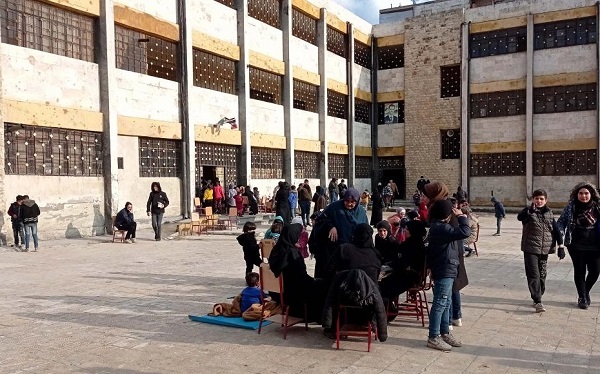Ankara, (Samajweekly) Nearly 60,000 Syrian refugees in Turkey have returned to their homeland after the devastating February 6 earthquakes that killed more than 57,300 people in the two neighbouring nations.
“Around 60,000 Syrians living in Turkey have returned to their lands due to the loss of their homes and relatives,” Turkish Defence Minister Hulusi Akar told reporters in the quake-hit southern province of Hatay.
The Minister refuted the claims that there was an influx of refugees from Syria, stressing that the Turkish border was strictly protected against illegal crossings.
“The allegations of illegal crossing through the border do not reflect the truth. Our borders are protected, guarded and watched day and night, by the most intense measures in the history of the republic, with state-of-the-art technology vehicles and equipment on a 24/7 basis,” Akar explained.
Turkey shelters over 3.6 million Syrians and is the world’s largest refugee-hosting country, granting many of them access to social services, residency, and employment permits.
The Turkish government last year banned Syrian refugees with temporary protection permits to make round-trips between the two neighbouring countries to encourage a thorough return to their homeland.
Following the earthquakes, however, the Turkish government loosened restrictions on refugees’ internal travel to make it easier for them to settle in camps and localities outside the disaster zones.
Turkish authorities begin to allow Syrian refugees residing in 11 quake-hit provinces to voluntarily return to northern Syria and then come back to Turkey as long as they do not spend longer than six months away.
The refugees are able to cross through the Bab al-Hawa, Bab al-Salam, and Jarablus border crossings.
In the earthquakes, there were more than 50,000 fatalities in Turkey, while Syria accounted for over 7,200.
They were the deadliest in Turkey since the 526 Antioch earthquake. It was also the deadliest in Syria since the 1822 Aleppo earthquake.
Damages were estimated to be $104 billion in Turkey and $5.1 billion in Syria, making the temblors the fourth-costliest earthquakes on record.







